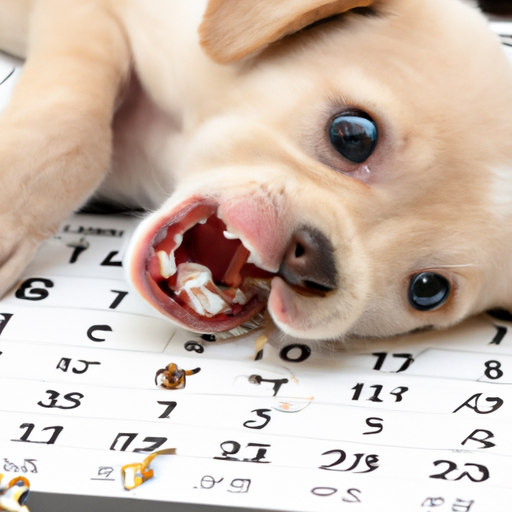As a puppy parent, it’s natural to be curious about your furry friend’s development. One of the most intriguing, yet often overlooked stages is when puppies lose their baby teeth. In this comprehensive guide, we’ll explore this fascinating aspect of puppyhood in great detail.
Understanding Puppy Teething
Just like human babies, puppies also go through a teething phase. They are born toothless, but their baby teeth, also known as deciduous teeth, begin to emerge when they are about 3 weeks old.
But when do puppies lose these teeth? Let’s dive in.
Puppy Tooth Loss Timeline
Generally, puppies start losing their baby teeth around 3-4 months of age. However, this can vary depending on the breed and individual puppy.
Here’s a general timeline:
- 3-4 weeks old: Deciduous teeth start to come in
- 3-4 months old: Puppies begin to lose their baby teeth
- 6-7 months old: Most puppies have all of their adult teeth
Recognizing the Signs of Teething
These are the common signs that your puppy is teething:
- Increased chewing
- Drooling
- Decreased appetite
- Red, swollen gums
- Finding tiny teeth around the house
How to Help Your Teething Puppy
Teething can cause discomfort for your puppy. Here are some ways to help:
- Provide Chew Toys: These can help relieve the discomfort and keep your puppy from chewing on inappropriate items.
- Freeze Treats: Frozen carrots or special puppy teething toys can provide a soothing coolness.
- Puppy-Proof your Home: Keep items you don’t want chewed out of reach.
What to Expect During the Teething Process
During the teething process, you may find baby teeth around your home. However, it’s more common for the puppy to swallow the teeth while eating. This is not usually a cause for concern.
When to Consult a Vet
If you notice any of the following, it’s best to consult a vet:
- Persistent bad breath
- Difficulty eating
- Excessive drooling
- Irregular loss of baby teeth
The Importance of Dental Care in Puppies
Even though puppies lose their baby teeth, it’s crucial to start dental care early. Regular brushing and check-ups can prevent many dental problems later on.
| Age | Dental Care Recommended |
|---|---|
| 8 weeks old | Begin brushing |
| 6 months old | First dental checkup |
Frequently Asked Questions
1. Can teething cause my puppy to be irritable?
Yes, just like human babies, teething can make puppies irritable due to the discomfort.
2. What should I do if my puppy’s baby tooth doesn’t fall out?
If a baby tooth doesn’t fall out and an adult tooth is growing in the same spot, consult your vet. The baby tooth may need to be extracted.
3. How many teeth does an adult dog have?
An adult dog typically has 42 teeth.
4. Is it normal for puppies to bleed when they lose their teeth?
A little bit of blood is normal. However, if you notice excessive bleeding, consult your vet immediately.
In conclusion, the teething process is an important stage in a puppy’s life. As caregivers, understanding and supporting them through this phase helps ensure their overall health and well-being.



